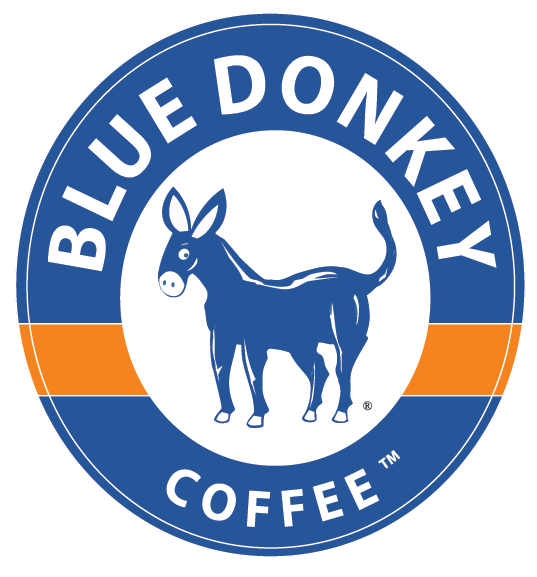The Blue Donkey
Deep in the rainforest of Central America, at midday, along a narrow, windy and rocky road, I sit outside a local “café” drinking locally grown, processed, roasted, brewed coffee. We sit on tree stumps. The tables are simple slats of rough cut wood nailed to posts in the bare ground. The “café” isa 8 ft by 8 ft wood structure, the menu includes coffee, of course, bottled water, sodas, matches, candles, and stale cookies. We are eight kilometers from the nearest pueblo. For the twenty minutes we sit therein lively conversation with the owner, Señor Teobaldo, only three young school boys walk by.They appear to be carrying supplies back home. On a steady beat they walk right past us without flinching an eye and off they go resolutely. There are no other businesses nearby. Evidently there are not many people to buy anything nearby either. American marketers would not have placed this café on this location and American bankers would not have approved this entrepreneur’s business plan.
Hey, but this is another country. It is not all about marketing.
The café owner is as cheerful and excited as if he were making this year’s million-dollar club. Then I see an older gentleman coming from the direction the school boys had gone. He is walking towards the pueblo and he is followed by a devoted donkey. The donkey has two large baskets strapped to his back hanging down on each side. The gentleman is strong, rugged, and at ease in the hot tropical weather. As he approaches, I begin to perceive a semblance of confidence. He nods at us as he gets close but his nod is only perceptible because the brim of his weathered hat accentuates minute movements of his head. His smile is as tempered and measured as his nod. His impassive rugged and stony face seems to yield all the radiance to his vibrant eyes and half smile that together communicate a state of contentment rarely seen even in affluent societies. The donkey seems to enjoy perfect harmony with his owner. He stops, straps the donkey’s lead onto a post at the “café’s” entrance, pulls his right hand up to his forehead greeting us all. He speaks to Señor Teobaldo. They appear to know each other well. Teobaldo introduces us to the gentleman. We shake hands. His hands are farmer’s hands, firm as hickory. We talk and eventually learn that his name is Don Isidro. He and his wife of thirty years have six children. All but two of his six children have completed high school. Some of them help on the farm and some moved into town. He also talks affectionately about his donkey. The donkey stands obediently by the door post as a faithful steward of his precious load, about 80 lbs of freshly picked coffee cherries. The donkey and his owner will soon arrive at the beneficio in the pueblo where they will off-load and make the trip back home possibly for another load. At the beneficio the coffee cherries will be pulped, processed in large fermentation vats, dried, and later stored. If his coffee meets export quality standards, coffee shop customers in America, Europe, or Japan sitting around fancy tables in air conditioned spaces may eventually enjoy his coffee without necessarily knowing where it came from.
His donkey is an important means of sustaining his family’s livelihood because his donkey is reliable, dependable, and economical. His donkey may be the only method of transportation that can reach certain high elevations, deep inclines, and rough terrain. One sure step at a time, day in and day out, harvest after harvest, load of cherries after load of cherries, his donkey delivers…surely and quietly, strong and firm, a major contributor of farm-to-market reality, a major contributor to sustaining quality of coffee, this beverage enjoyed by so many.
Blue Donkey Iced Coffee celebrates Don Isidro’s life and the livelihood of local communities throughout the globe!
Copyright Blue Donkey Coffee 2010
